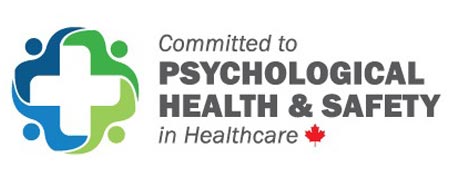Bullying – The repeated, persistent, continuous behaviour as opposed to a single negative act and is generally associated with a power imbalance between the victim and perpetrator, where the victim feels inferior.
Burnout – Is a state of physical, emotional, and mental exhaustion caused by long-term exposure to demanding work situations. Burnout is the cumulative result of stress.
Code of Ethics – The Code includes principles based on an organization’s core values and the standards to which the medical laboratory profession will be held. It is a statement of and provides practical ethical guidance on our ethical values and commitment to providing direct and indirect patient care, working collaborative with others, the maintenance of our professional identity, and our commitment to self-improvement and the improvement of the future workforce.
Code of Professional Conduct – The Code describes the principles, values, standards, and rules of behaviour that guide the decisions and actions of a professional. It is the minimal set of standards for practice that is expected to be upheld within and outside of the professional domain in order to ensure ‘good standing’ in the profession.
EAP – The abbreviation for Employee Assistance Program.
Employee Assistance Program (EAP) – Is a confidential, voluntary program of information, referral, and/or counselling designed to help employees with a variety of personal problems.
Health – Is a state of complete physical, mental, and social well-being and not merely the absence of disease or infirmity.
Mental Health – The Mental Health Commission of Canada states that, “Mental health is a state of well-being in which the individual realizes his or her own potential, can cope with the normal stresses of life, can work productively and fruitfully and is able to make a contribution to her or his own community.”
Mental Health Literacy – Is the knowledge and skills that enable people to access, understand, and apply information to mental health.
Mental health promotion – Is the process of developing positive mental health for and with the community in general, and for and with individuals who experience mental illness. The concept of mental health promotion recognizes that people’s mental health is inextricably linked to their relationship with others, environmental and lifestyle factors, and the degree of power they can exert over their lives.
Mental Illness – It is a recognized, medically diagnosable illness that results in the significant impairment of an individual’s cognitive, affective or relational abilities. Mental disorders result from biological, developmental and/or psychosocial factors and can be managed using approaches comparable to those applied to physical disease (i.e., prevention, diagnosis, treatment and rehabilitation).
Mental Wellbeing –Identifies mental health indicators that are comprised of three domains: 1) Emotional well-being such as perceived life satisfaction, happiness, cheerfulness, peacefulness. 2) Psychological well-being such as self-acceptance, personal growth including openness to new experiences, optimism, hopefulness, purpose in life, control of one’s environment, spirituality, self-direction, and positive relationships. 3) Social well-being such as social acceptance, beliefs in the potential of people and society as a whole, personal self-worth and usefulness to society, sense of community.
Presenteeism – Is the reduced productivity of someone who is present at work but either physically and/or mentally unwell, and therefore not as effective, efficient or productive as they would normally be. It is an inability to focus and achieve work outcomes due difficulty concentrating because of stressors. The distracting stressors often include health problems, workplace conflict, bullying, and home-life issues.
Standards of Practice – The Standards are detailed concepts used to determine what a medical laboratory professional should or should not do. The standards provide a guide to the knowledge, skills, judgment, and attitudes that are needed to demonstrate exemplary competence.
Stigma – The negative attitudes (prejudice) and negative behaviour (discrimination) toward people with mental health issues or illness.
Self-stigma – People with mental illness may begin to believe the negative thoughts expressed by others and, in turn, think of themselves as unable to recover, undeserving of care, dangerous, or responsible for their illnesses.
Structural Stigma – Stigma that is part of social and institutional policies and practices.
Stress – Is the response of your body and mind to demands being placed on you.
Workplace Stress – Is the harmful physical and emotional responses that can happen when there is a conflict between job demands on the employee and the amount of control an employee has over meeting these demands. In general, the combination of high demands in a job and a low amount of control over the situation can lead to stress.
Workplace Wellness Program – A workplace-based program that incorporate health promotion and disease prevention activities with the goal of improving the health of employees.





